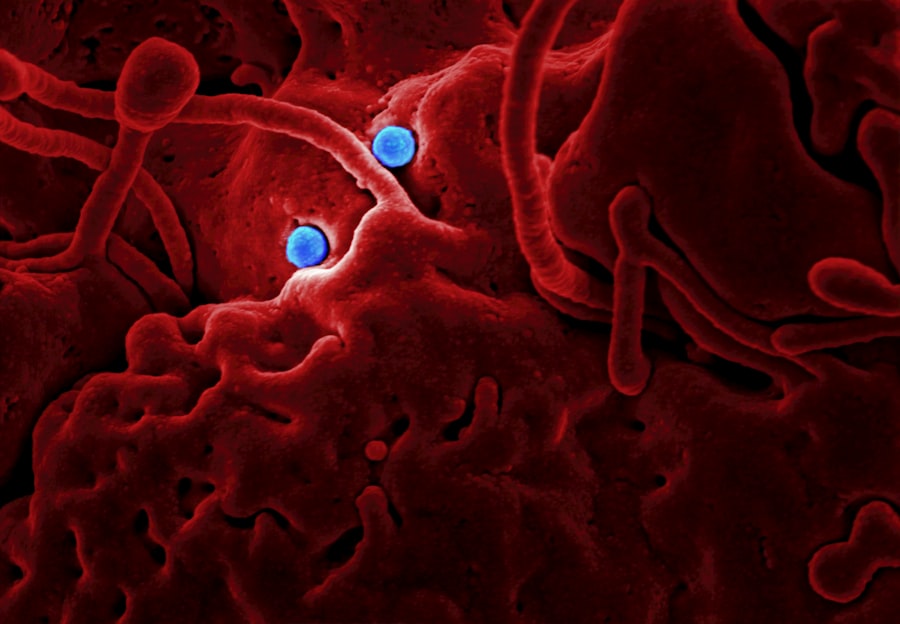ADHD, or Attention Deficit Hyperactivity Disorder, is a neurodevelopmental disorder that affects both children and adults. It is characterized by symptoms such as inattention, hyperactivity, and impulsivity. These symptoms can have a significant impact on daily life and productivity. In this blog post, we will discuss the benefits of using puzzles as a tool for managing ADHD symptoms. Puzzles can be a fun and engaging way to improve focus and attention, reduce stress, and increase cognitive function.
Key Takeaways
- ADHD is a neurodevelopmental disorder that affects attention, hyperactivity, and impulsivity.
- Symptoms of ADHD include difficulty focusing, forgetfulness, restlessness, and impulsivity.
- Puzzles can be a fun and beneficial tool for individuals with ADHD to improve focus and cognitive skills.
- Choosing the right puzzles for ADHD involves considering the level of difficulty, type of puzzle, and personal interests.
- Combining ADHD puzzles with self-care strategies such as exercise, mindfulness, and medication can help manage symptoms and improve overall well-being.
What is ADHD?
ADHD is a neurodevelopmental disorder that affects approximately 5-10% of children and 2-5% of adults worldwide. It is characterized by persistent patterns of inattention, hyperactivity, and impulsivity that are more severe and frequent than what is typically observed in individuals at a similar age and developmental stage. ADHD is believed to be caused by a combination of genetic, environmental, and neurological factors.
Symptoms of ADHD
The symptoms of ADHD can vary from person to person, but the most common symptoms include inattention, hyperactivity, and impulsivity. Inattention refers to difficulty staying focused on tasks or activities, being easily distracted, and frequently making careless mistakes. Hyperactivity involves excessive movement and restlessness, such as fidgeting or squirming in one’s seat. Impulsivity refers to acting without thinking, interrupting others, and having difficulty waiting for one’s turn.
These symptoms can have a significant impact on daily life and productivity. Individuals with ADHD may struggle with completing tasks, organizing their thoughts or belongings, and maintaining relationships. They may also experience difficulties in school or at work due to their inability to concentrate or follow instructions.
ADHD and Focus
| ADHD and Focus Metrics | Value |
|---|---|
| Prevalence of ADHD in children | 6.1 million in the US |
| Prevalence of ADHD in adults | 4.4% in the US |
| Percentage of children with ADHD who also have a learning disability | 30-50% |
| Percentage of adults with ADHD who also have a substance use disorder | 25-50% |
| Percentage of children with ADHD who experience sleep problems | 50-75% |
| Percentage of adults with ADHD who experience sleep problems | 50-70% |
| Percentage of children with ADHD who experience anxiety | 25-40% |
| Percentage of adults with ADHD who experience anxiety | 50-70% |
| Percentage of children with ADHD who experience depression | 10-30% |
| Percentage of adults with ADHD who experience depression | 30-50% |
One of the core symptoms of ADHD is difficulty with focus and attention. Individuals with ADHD often struggle to concentrate on tasks for an extended period of time and may become easily distracted. This can make it challenging to complete assignments, follow instructions, or engage in conversations. It can also lead to feelings of frustration and low self-esteem.
Improving focus and attention is crucial for individuals with ADHD to succeed in various aspects of life. Developing strategies to manage and improve focus can help individuals with ADHD overcome these challenges and reach their full potential.
ADHD Puzzles: A Fun and Beneficial Tool
Puzzles can be a fun and engaging tool for managing ADHD symptoms. They provide a structured and focused activity that requires concentration, problem-solving skills, and attention to detail. Puzzles come in various forms, such as jigsaw puzzles, crossword puzzles, Sudoku, and brain teasers. They can be done individually or in a group setting.
The process of solving puzzles can be highly rewarding for individuals with ADHD. It allows them to engage their minds in a challenging and stimulating activity while also providing a sense of accomplishment upon completion. Puzzles can also be a great way to relax and unwind, reducing stress and anxiety.
Benefits of Puzzles for ADHD

There are several benefits of using puzzles as a tool for managing ADHD symptoms. First and foremost, puzzles can help improve focus and attention. The act of solving a puzzle requires concentration and mental effort, which can help individuals with ADHD train their brains to stay focused on a task for an extended period of time.
Research has also shown that puzzles can help reduce stress and anxiety. Engaging in a puzzle can provide a sense of calm and relaxation, allowing individuals with ADHD to take a break from the constant mental stimulation and hyperactivity that they may experience.
Furthermore, puzzles can increase cognitive function. They require problem-solving skills, critical thinking, and the ability to think creatively. By regularly engaging in puzzles, individuals with ADHD can improve their cognitive abilities and enhance their overall brain function.
How to Choose the Right Puzzles for ADHD
When choosing puzzles for individuals with ADHD, it is important to consider the level of difficulty and the type of puzzle. Start with puzzles that are appropriate for the individual’s age and skill level. Too easy puzzles may not provide enough challenge, while too difficult puzzles may lead to frustration and discouragement.
Consider the individual’s interests and preferences when selecting puzzles. Some individuals may prefer visual puzzles, such as jigsaw puzzles or picture-based puzzles, while others may enjoy word-based puzzles, such as crossword puzzles or word searches. Experiment with different types of puzzles to find what works best for the individual.
ADHD Self Care: Tips and Strategies
Self care is an essential component of managing ADHD symptoms. It involves taking care of one’s physical, mental, and emotional well-being. For individuals with ADHD, self care can help reduce stress, improve focus and attention, and enhance overall quality of life.
Exercise is a particularly beneficial self care activity for individuals with ADHD. Physical activity has been shown to improve focus, attention, and cognitive function. Engaging in regular exercise can also help reduce hyperactivity and restlessness.
Mindfulness practices, such as meditation or deep breathing exercises, can also be helpful for individuals with ADHD. These practices can help calm the mind, reduce stress, and improve focus and attention.
Organization is another important aspect of self care for individuals with ADHD. Developing systems and routines for managing time, tasks, and belongings can help reduce feelings of overwhelm and improve productivity.
Combining ADHD Puzzles with Self Care
Using puzzles as a tool for managing ADHD symptoms can be incorporated into a self care routine. For example, setting aside dedicated time each day or week to engage in puzzle-solving can provide a structured and enjoyable activity that promotes focus and relaxation.
Puzzles can also be combined with other self care strategies. For instance, solving a puzzle while practicing mindfulness techniques can help individuals with ADHD relax and improve their ability to concentrate. Additionally, incorporating puzzles into an organized and structured environment can help individuals with ADHD develop better organizational skills.
Puzzles as a Tool for Managing ADHD Symptoms
In conclusion, puzzles can be a valuable tool for managing ADHD symptoms. They provide a fun and engaging way to improve focus and attention, reduce stress, and increase cognitive function. By incorporating puzzles into a self care routine, individuals with ADHD can enhance their overall well-being and improve their ability to manage their symptoms.
If you or someone you know is struggling with ADHD, consider giving puzzles a try. Start with puzzles that are appropriate for your skill level and interests, and gradually increase the difficulty as you progress. Remember to also incorporate other self care strategies, such as exercise, mindfulness, and organization, to maximize the benefits of using puzzles as a tool for managing ADHD symptoms.
If you’re interested in learning more about ADHD and how it can be diagnosed, you might find this article on ADHD Testing quite informative. It discusses the importance of accurate testing and assessment for individuals with ADHD, and provides insights into the different methods used to diagnose the condition. Whether you’re seeking information for yourself or a loved one, this article can help shed light on the process. Check it out here. Additionally, if you’re new to the topic of ADHD, you may want to start with this introductory article titled “Hello World!” which provides a general overview of ADHD and its impact on individuals. You can find it here.
FAQs
What is ADHD?
ADHD stands for Attention Deficit Hyperactivity Disorder. It is a neurodevelopmental disorder that affects a person’s ability to focus, pay attention, and control impulsive behaviors.
What are ADHD puzzles?
ADHD puzzles are a type of puzzle game designed specifically for individuals with ADHD. These puzzles are designed to help improve focus, attention, and cognitive skills.
How do ADHD puzzles work?
ADHD puzzles work by engaging the brain in a challenging and stimulating activity. These puzzles require the player to focus, pay attention, and use problem-solving skills to complete the puzzle.
What are the benefits of playing ADHD puzzles?
Playing ADHD puzzles can help improve cognitive skills, such as attention, focus, and problem-solving. It can also help reduce stress and anxiety, improve mood, and increase self-esteem.
Who can benefit from playing ADHD puzzles?
Anyone can benefit from playing ADHD puzzles, but they are specifically designed for individuals with ADHD. These puzzles can be helpful for children and adults who struggle with attention and focus.
Are there any risks associated with playing ADHD puzzles?
There are no known risks associated with playing ADHD puzzles. However, it is important to take breaks and not overdo it, as with any activity. It is also important to consult with a healthcare professional if you have any concerns about playing these types of games.














